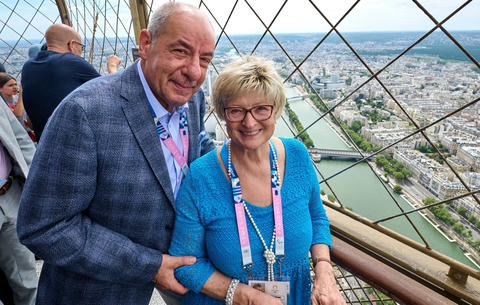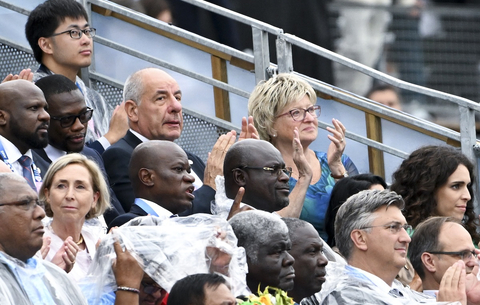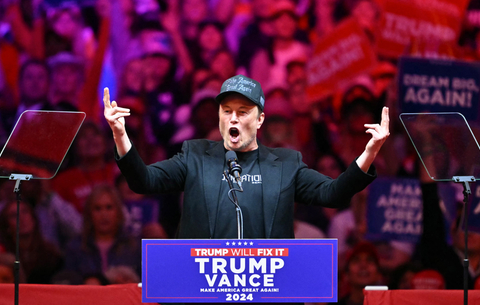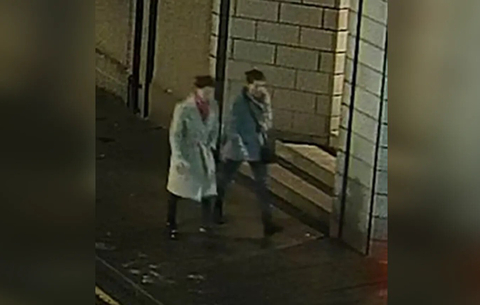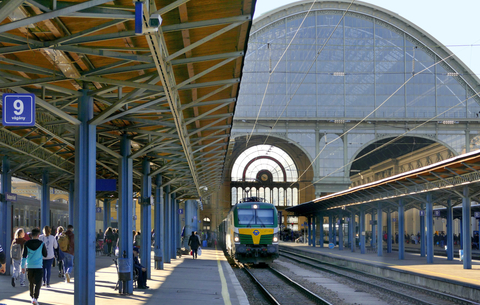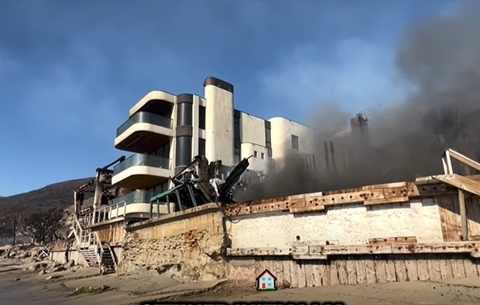Solyom and MPs' safety fears
A week ago, the president made it clear he would not support any attempts to limit the legal rights of people demonstrating in front of Parliament. But a few things have changed since then.
Laszlo Solyom |
Laszlo Solyom has chosen the role of a strict father for his interventions in Hungarian public affairs and for his pronouncements on the "moral crisis." He clips both children on the ear and sets things to rights - like a father who's not interested in who started it. Few speeches or interviews are perfect, of course, and one unfortunate feature of public interventions is that they are addressed to the present but validated by the future. Churchill's famous words about blood, sweat and tears were justified retrospectively by his standing up against the Nazi empire and winning.
It's characteristic of Hungarian heads of state that they get carried away by the sound of their own voices. This happened with his American visa and with the radar affair. Last Monday, on the opening day of the autumn Parliament, he said that, though at the time of the regime change the people who wanted to restrict demonstrations around Parliament argued the demonstrations were disturbing MPs' work, it was right for people to express opinions at the gates of the legislature. "Until spring, the space in front of Parliament sees sports competitions, academic commencement ceremonies and other similar events. I've even heard that Disz ter in the castle is used for such events," the president said, apparently highlighting the tricks the government was using to silence the people.
But Solyom has been more cautious with respect to his own office. While stating that he would never want his palace to be cordoned of, he has been quick to advise protesters to stay away from the Sandor Palace. Maybe it was just a diplomatic manoeuvre, but he cited "security reasons" for not attending the unveiling of the 1956 memorial monument on 23 October. Yet he hardly needed to fear the demonstrators. They weren't angry with him, but with the government.
After making his speech last Monday, the president got into his car, had himself driven to his palace, from where, as he says, he "sees far," while the MPs leaving Parliament that day immediately had to run the gauntlet of the protesters. The same happened yesterday. It seems that events got ahead of the president's important and weighty remarks.
The cordon that closed off most of Kossuth ter was illegal. Police were interested in their own and in politicians' convenience, not the law, when they sealed off the square for six months. But it's Solyom's misfortune that his remarks last Monday take on a more ugly character in the light of insults directed at MPs. It's quite clear that concerns expressed for the working habits and physical safety of MPs were not just a "trick" employed by the government to restrict the right of free assembly. There is a constitutional need to protect the human dignity and ability to work of MPs just as there is to defend the freedoms of assembly and opinion. It's also hard to argue that threatening MPs, even if they are from the governing party, throwing projectiles and spitting at them, is the kind of freedom of opinion the Constitution was designed to protect.
In his speech, Solyom talked about the years he spent in Germany, saying nobody there is scared of the Far Right, even if it is ever-present. Of course, he forgot to mention that in Berlin, nobody would launch a series of world-changing or nation-saving demonstrations in front of the Reichstag. It's forbidden there, and the police would instantly arrest the demonstrators. That's the way it is in most constitutional democracies. The workings of the legislature are safeguarded by laws and court rulings.
It is appealing that Solyom is a defender of basic rights. Such an attitude is very important in a country where politicians and even judges do not regard the defence of the Constitution as their primary task. Solyom clearly attaches great importance to mounting a coherent defence of the Constitution. He now has an opportunity to admit that he was mistaken in the light of events, since, and let me now quote the president, "confidence is built by having a clear moral code, by using language precisely and by speaking honestly." He's right that the civil liberties laws that were enacted during the regime change - including the law on freedom of assembly - should only be changed in very specific circumstances. But he should also concede, at least in principle, that it is not necessarily unconstitutional for limits to be set on the activities of demonstrators in front of Parliament. At the same time, naturally, the governing parties must accept that if the president rejects a proposed change, this does not mean he is helping Fidesz and working against the government.
G. K.



